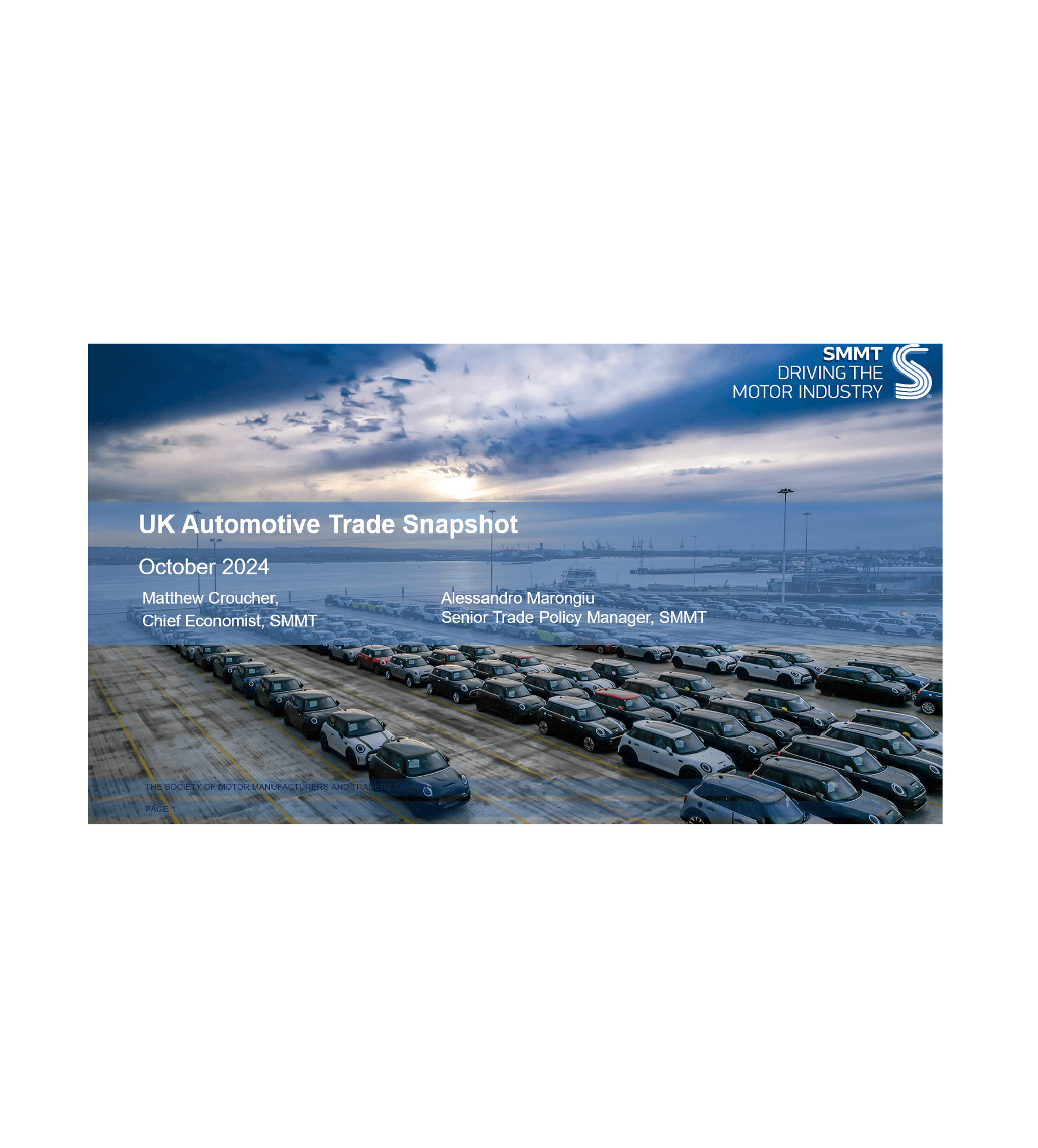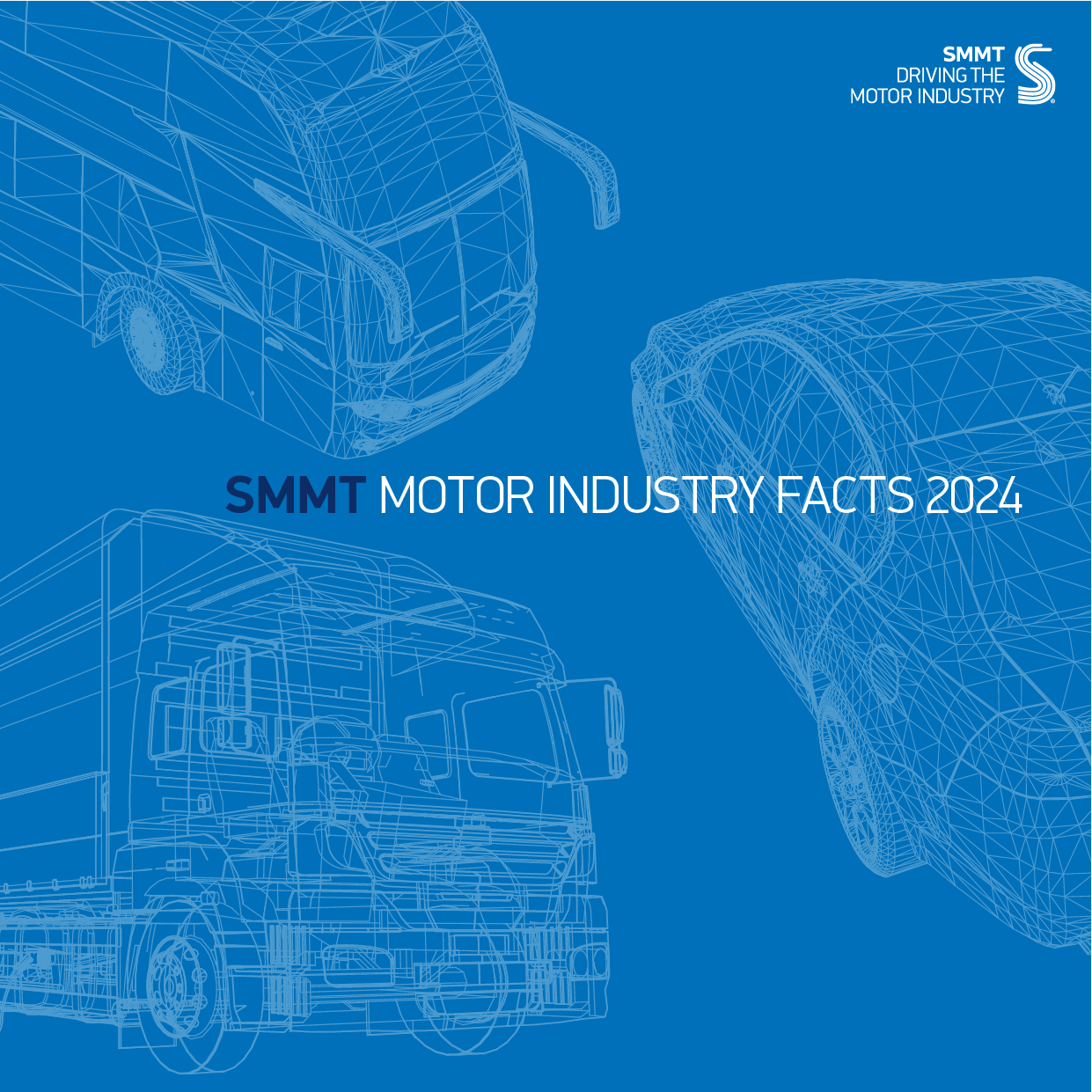Driving Global Britain
Free trade agreements and partnerships that open up markets and supply chains for worldclass vehicles and components to be made in Britain and exported to the world.
Global market appeal
The UK automotive sector is a £100 billion+ global trading hub, and the engine room of Britain’s international trade, generating £1 in every £8 the UK earns from exporting goods.
It is the UK’s biggest exporter of manufactured goods, shipping everything from small volume and luxury vehicles; mass market cars and vans; trucks, buses and taxis; to powertrains, parts and components to more than 140 countries around the world.

- Ensure Free Trade Agreements support the UK’s industrial capability and changing technologies through appropriate Rules of Origin and market access rules.
- Establish and maintain new and innovative partnerships with minerals-rich countries such as Australia, Canada and Indonesia to secure supplies of critical raw materials and other inputs.
- Create the best possible conditions for remanufacturing and the circular economy to source tariff-free from anywhere, to process and/or recycle them in the UK for re-use at home and abroad without tariffs.
- Deliver a modern border and customs framework that facilitates smooth, cost effective trade, supported by trade promotion and export services and funding.

Key Exports Data
78.9%
of all vehicles made in Britain are exported
603,565
cars were manufactured for export in 2024
54%
of UK-built vehicle exports were accounted for by the EU
8 out of 10
cars produced in the UK are exported overseas
1,032,534
engines were manufactured for export in 2024
82,097
commercial vehicles were built for export in 2024
Top 10 Export Destinations
- EU 54.0%
- US 16.9%
- China 6.6%
- Turkey 4.3%
- Japan 2.9%
- Australia 2.2%
- Canada 1.7%
- South Korea 1.5%
- UAE 1.1%
- Israel 1.1%

Markets, access and free trade
SMMT plays a crucial role advocating for the industry – Britain’s biggest exporter of manufactured goods – in international trade negotiations, providing the industry with a vital voice.
With Rules of Origin on exports to our largest trade partner, the EU, set to get tighter in 2027, our industrial and trade policy must be co-ordinated to drive investment in domestic capabilities (such as minerals refining, cathode and anode active materials, battery component and cell manufacturing, and electric drive units). Also crucial are achievable trade and origin requirements to ensure we can benefit from and maximise tariff-free trade.
We need greater access to critical minerals and new inputs of production which are sustainable, affordable and support our industrial capabilities and international treaty obligations, and avoid non-tariff technical barriers to trade. The rapid shift to electrified, low emission and automated vehicles offers a huge market opportunity as British manufacturers develop new vehicles and powertrain technologies.
SMMT Automotive Trade Snapshot
SMMT’s Global Trade Report provides a comprehensive view of the UK’s international automotive trade – its importance to the economy, the growing role of electrified vehicles, and the new markets that matter for growth.


“The automotive industry’s ability to navigate uncharted terrain remains undiminished: a global pandemic, war in Ukraine, prolonged supply chain shortages and the once-in-a-generation shift towards electrification – all in addition to Brexit, a cost-of-living crisis and soaring inflation. All were, or are, massive challenges that would test any industry, yet our sector has demonstrated its resilience and pathway to growth, growth firmly driven by global trade”
Mike Hawes, SMMT Chief Executive
Automotive Insights

UK Automotive Trade Snapshot 2024
SMMT’s automotive trade snapshot shows that the automotive sector remains Britain’s largest exporter of manufactured products, increasing its share of these exports to 13.9% in the first half of 2024. The value…

Vision 2035 – Ready to Grow

SMMT Motor Industry Facts 2024
apply to join
SMMT’s comprehensive membership base covers every aspect of the automotive industry, from vehicles to components, trailers to aftermarket; and from large global corporations to small and medium enterprises. The scope of interest of our members also varies dramatically, ranging from direct, partial or indirect involvement in the manufacturing of vehicles and components, to design engineering and distribution, and a variety of other services aligned to the industry.
Get in touch to find out how to join SMMT.
If you are already a part of an organisation that has an SMMT membership, click here to register your account.
Find out how your company can become a member of SMMT.
"*" indicates required fields